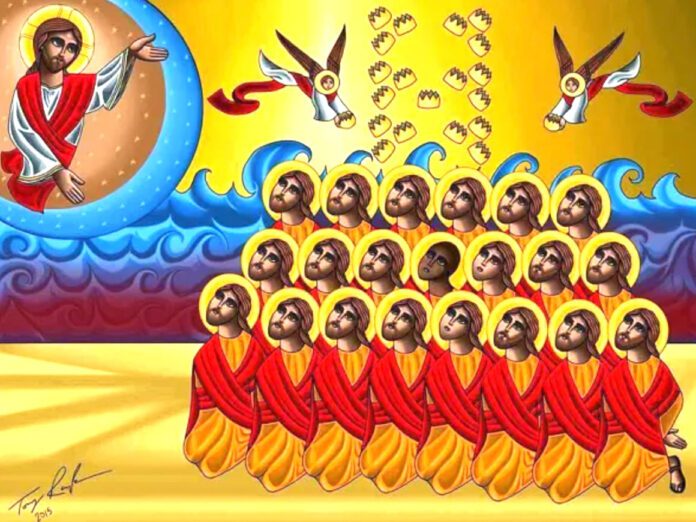
Martyrdom still exists in the modern day
Disclaimer:
All articles published within this section of The Cor Chronicle are the opinions of the respective authors and do not necessarily reflect the opinions of The Cor Chronicle.
Atheists consider Christianity a weak, dying reality, but the number of strong believers who have sacrificed their lives for Christ and universal righteousness show that this is not the case. Faith is something inherent. While I wouldn’t want anyone to prove their faith by sacrificing themselves, we as a community of many churches, but one God, should know and be proud of all those who have had the privilege and misfortune to die as martyrs.
On Feb. 15, 2015, ISIS militants brutally executed 21 civilians on a beach in Sirte, Libya. This event was not an isolated killing of Christians in modern times. However, it is notable because the victims were officially canonized as martyrs by both the Coptic Orthodox and Catholic Churches.
One of the victims, Matthew Ayariga, received special attention because he was neither a Coptic Christian nor a Catholic; moreover, it is not even known whether he was baptized, and, if so, by which Church.
Nevertheless, Ayariga stood by his comrades and reportedly told the militants before his death that “their [the other captives’] God is my God.” As the Catechism of the Catholic Church states, “those who suffer death for the sake of the faith with- out having received Baptism are baptized by their death for and with Christ.” Thus, Ayariga became a Christian in the last moments of his life.
This story confirms that the Vatican does not dismiss non-Catholics, for the same God lives in the heart of every man, whether he realizes it or not.
Similarly, eight years ago, four sisters from the Missionaries of Charity convent in Yemen were killed by two gunmen. One of their last prayers called, “Lord, teach me to be generous. Teach me to serve you as you deserve; to give and not to count the cost, to fight and not to heed the wounds.”
Indeed, these sisters’ wounds are sealed in universal goodness, as well as the wounds of all the martyrs. As Geroge Eliot in “Middlemarch” said:
“…the growing good of the world is partly dependent on unhistorical acts; and that things are not so ill with you and me as they might have been, is half owing to the number who lived faithfully a hidden life, and rest in unvisited tombs.”
When speaking of contemporary martyrdom, one ought to point out that Christians are suffering all over the world, not only in poor peripheral countries, but also in economic “superpowers” infected by authoritarianism. There are dozens and hundreds of prisoners of conscience in China, Russia and even in Europe, not a few of whom are accused of nonviolently expressing their political or religious beliefs.
For example, Alexei Navalny, a practicing Orthodox Christian and political activist, recently died in Russia. Apart from investigating corruption and lawlessness in politics, he also investigated injustices within the Church of Moscow Patriarchate. One day in the courtroom, he said: “The one commandment I have always taken as such a more or less instruction for action: ‘Blessed are those who hunger and thirst for righteousness, for they will be satisfied.’”
Navalny died in prison on February 16, and authorities only recently released his body to his mother for burial. He too is a martyr, a martyr of political influences that blackens our faith both in the eyes of people and before God.
This is a matter of politics, you will say, and you will be right. However, as long as the earthly Church exists, the leviathan of the state will always try to subjugate the Church, to seize the most dangerous weapon of political propaganda by proclaiming itself a God-fearing nation, like the Russian red nationalists or Islamic militants.
Religion is not dying, but suffering from a temporary illness. Unprecedented cases like Ayariga’s conversion on the threshold of death keep us zealous and hopeful. The return of the lost sheep inspires us to perseverance and dedication in his memory and in the memory of all those who have died for Christ.